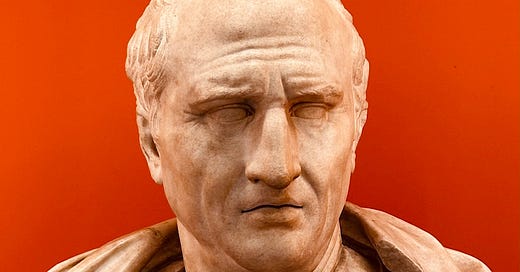“The case of our friend Pompey was something better: once, when he had been very ill at Naples, the Neapolitans, on his recovery, put crowns on their heads, as did those of Puteoli; the people flocked from the country to congratulate him—it is a Grecian custom, and a foolish one; still, it is a sign of good fortune.
But the question is, had he died, would he have been taken from good, or from evil?
Certainly from evil. He would not have been engaged in a war with his father-in-law; he would not have taken up arms before he was prepared; he would not have left his own house, nor fled from Italy; he would not, after the loss of his army, have fallen unarmed into the hands of slaves, and been put to death by them; his children would not have been destroyed; nor would his whole fortune have come into the possession of the conquerors.
Did not he, then, who, if he had died at that time, would have died in all his glory, owe all the great and terrible misfortunes into which he subsequently fell to the prolongation of his life?”
(Tusculan Disputations, 1.35)













Share this post